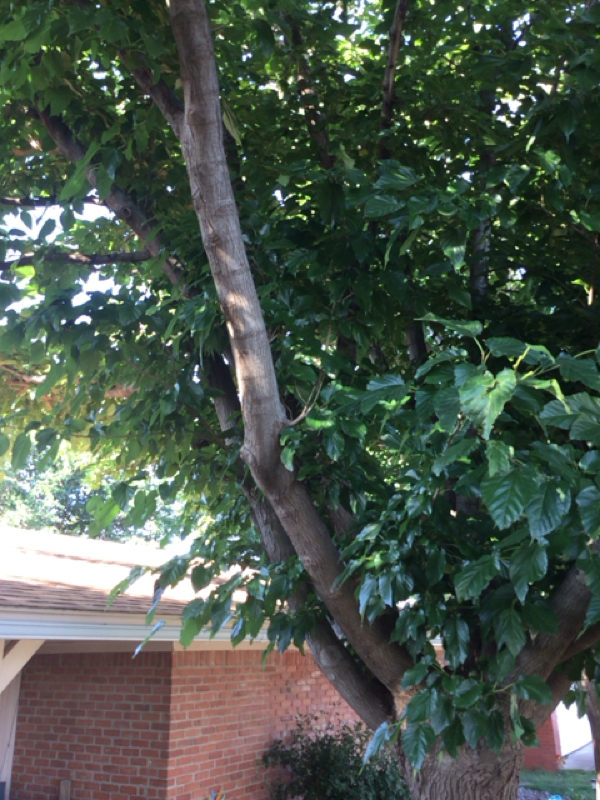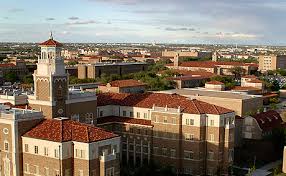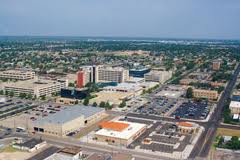|
Did you know? It's estimated that 20% of California's water use is allocated to residences. 80% is allocated to agriculture. Doesn't sound too crazy so far, right? I mean, California and Texas are both known for farming.... Did you know? Agriculture contributes less than 2% of California's GDP. So the Ag industry uses 80% of the water statewide, while earning 2% of the states' income. Hmmmm, sounds way out of whack now! Let's dig a little deeper. Did you know? A pound of beef can require 10,000 gallons of water to create. A pound of broccoli requires about 90 gallons of water to create. Not much broccoli growing going on in west Texas. But lots of cattle raising. Did you know? Giant Agribusiness farms in California actually pay less for their water than everyone else. The state subsidizes the cost for them. Did you know? Alfalfa production is estimated to use 15-20% of California's water. Yet, most of the Alfalfa grown there is shipped overseas. So the state taxpayers are running out of water while paying for big business to use up the state's water supply while taking more millions! What can Texas learn from this? Water usage, droughts, and all of the attached concerns are not gone for good. West Texas has been blessed with much needed rain this year. But, the water in our area lakes, rivers, & aquifers won't last forever. It's all about thinking and planning ahead! We need to be responsible with our personal water usage. Water the yard only when necessary. Landscape using plants that don't need much water to thrive. Don't waste water inside the home. Use fixtures that conserve water and still get the job done. But, I think most importantly, we need to make sure we hold government accountable for their part in conservation too.
1 Comment
As the heat of our West Texas summer kicks in to full swing, we usually notice the sweat on our brow. Soon after, however, we may notice the increase in our utility bills! Following are a few ways you may be able to beat the heat at home, & save your hard earned money too! 1. Natural shade. For those of you contemplating buying a new home, I strongly recommend trees (or lack thereof) to be a consideration before you buy. You simply cannot replace the natural shade of established, mature trees. This is something that almost all new construction neighborhoods just can't offer. So, you should consider the real possibility that you may not be able to enjoy your new yard in the summer, and your utility bill may reflect the lack of shade between your home and that HOT West Texas sunshine! For those considering a resale home, consider the current placement of trees and shrubs. Trees should shade the home and yard, not overwhelm it. Trees that appear overgrown and in need of attention probably haven't had the care they need over the years. That may mean you could be footing the bill for tree trimming and pruning, or even removal ($$$$!!)of sick or dead trees later on. Healthy trees can have a big impact on being able to enjoy your yard all summer, and helping your air conditioning system operate more efficiently and your home stay cooler. 2. Make the most of cool nights. When it's possible and safe, you might consider letting nature cool your home. Opening windows and doors may provide all the cool air you need at times. Why pay for it when God created it for all of us to enjoy? 3. Less is more. Rooms that are not in use can have their supply vents closed to avoid wasting cool air on those areas of your home. *Caution* Don't close off areas with return air vents. Your heat/cooling system was designed to use these vents to provide air to the system. 4. Have you A/C system serviced regularly. Though some companies recommend having your heating and cooling system serviced twice a year, at least annually should be your goal. By having it serviced on a regular basis, you are actually helping the system operate more efficiently and extending the lifespan of your heating/cooling system as well. (Read: save $$$ long term!) 5. Change the Filter! In my opinion, air filters should be changed monthly in West Texas. I'm aware that many big box stores sell air filters that advertise their usefulness for 3 or even more months before you have to change them. I just don't believe those work well for the South Plains and the Permian Basin. Too much wind. Too much dust. The rules are different here. Even if you choose to invest in multi month air filters, I urge you to replace them monthly. Hopefully, I've got you thinking! There's so much to consider when buying a home, and we certainly can't forget how our West Texas weather can affect our home too! Moving is almost always stressful. Whether you're moving across town, across the country, or somewhere in between, we can all use helpful hints for moving into our new home!
1. Get rid of what you don't need to take with you. If you're paying a moving company to move your stuff, your usually paying by the pound. That means you're paying to move things that you may not even want if you don't clear out the excess clutter before the move. If you are moving yourself, well, it's more sweat and back aches! Set a standard for what you really need to move and what you can live without. And then stick to it! 2. Once you've established what goes and what stays, think of how and where you can divest of said stuff. Maybe a yard sale? Donate? Recycle? Or maybe the trash? Choices, choices. 3. Pack up what's most cherished to you. Don't leave this to the movers. If it's that important to you, handle and maybe even consider moving it yourself. That way you can be better assured that it's taken care of the way you would want it to be. 4. Packed for you to move on your own, or packed for the movers, label, label, label! Number the boxes. Label the boxes. Keep an inventory. This will help with the peace of mind knowing that your things made it to your new home. This method will also help with the glorious unpacking process! You won't have to wonder what is in which box?!?!? 5. Set a timeline. And stick to it. A calendar can come in very handy for managing your move. Plan to pack room "X" by this date. Plan to have this appliance empty and ready to move by this date and time. And so on. Moving is not typically easy or fun. But with some planning and execution, it can be efficiently and peacefully! Just a few great reasons to live in or around Lubbock, Texas. It's called the Hub City for a reason! The cost of living usually stays very steady, and Lubbock's cost of living ranks about 15% lower than the national average! This means when you are shopping for a home, you will see how much further your $$ goes! Texas Tech University. Home of the Red Raiders. Saturday home football games in the fall are an experience you will never forget! Not to mention, all of the great dining and shopping choices in town because of Texas Tech. Wreck 'em Tech! Lubbock Christian University also calls Lubbock home! And we can't forget that South Plains College and Wayland Baptist University also have campus locations in and around the city of Lubbock. The Lubbock music scene is second to none! Lubbock even has it's own music festival. Regardless of what type of music you prefer, Lubbock probably has a live event to your liking! Lubbock and the South Plains always serve up great food! So many selections and specialties, and an option for every taste! And they're known for their great service too! No matter where your new home may be located, there's probably a great place to dine out near you! Lubbock and the South Plains certainly feature the best medical care in Texas. Probably the best medical care options in the U.S.. What better peace of mind can you ask for? The great outdoors! Sports! Camping, hunting, hiking, biking, fishing, golf, softball, football, baseball, basketball, you name it, the South Plains has you covered!
In today's real estate market, buyers have more options than ever before when it comes to "House Hunting". Whether you want to narrow down your possible future home choices via the internet before ever setting foot in a home, or maybe you'd rather tour possible options with a Realtor? Homes are full of surprises. Some are almost invisible. Others clues that may indicate concerns are there for a professional home inspector to seek out and report. And, not surprisingly, there are sometimes even important clues that a savvy buyer can look for while house hunting.
Home buyers should always be vigilant before making a home purchase. Good common sense and asking the right questions before you buy are crucial qualities to have. Some thought provoking points: If the home was built in the 50's or 60's for example, it was most likely not designed with an open floor concept, as you may see in modern new home construction. If the neighborhood you are shopping in has row after row of similar looking homes, and the home you are considering looks markedly different, why? Maybe something major has been changed. Lots of fresh paint? New looking floors? New plumbing fixtures? You maybe looking at a freshly flipped property. Just because it's a flipped home doesn't mean it's poor quality. In fact, many fliiped properties are well built and dont right. But, let's not forget the inherent nature of flipping properties means the whole purpose is to get construction completed ASAP as the sooner it's complete, the sooner it's a sold home. What esle can you do? Your best bet is to call me! Double C Home Inspections provides 1000 point inspections and I can help provide some much needed peace of mind. I Care. |
AuthorCale Cameron Archives
May 2024
Categories |
Proudly powered by Weebly








 RSS Feed
RSS Feed